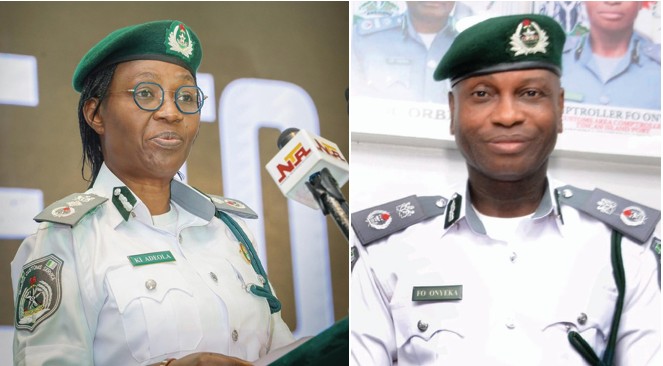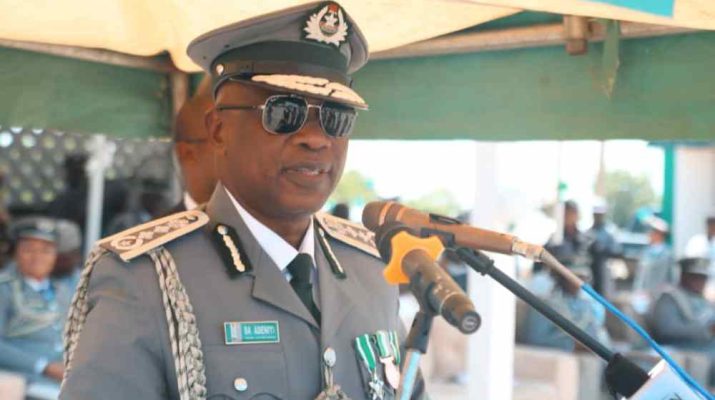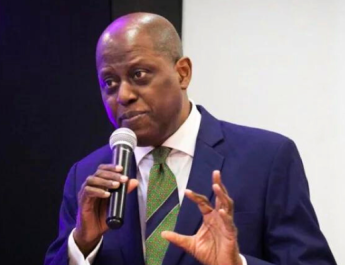The Nigeria Customs Service (NCS) reveals intention to deploy broken grammar to communicate its new and faster cargo clearing technology, the B’Odogwu, to the trading community in the country, as well as to export it to the global community
By Innocent Chukwu
The expectations were high, as well as the excitement. There was never a dull moment, from the time of commencement early in the morning till when it was wrapped up late in the afternoon. Attendees were in for a memorable occasion.
The event was the Nigeria Customs Service’s (NCS) “Town Hall Meeting with Stakeholders on B’Odogwu Clearance” of cargoes held in Lagos on Monday, July 21, 2025. The theme of the meeting was, “Enhancing Trade Compliance and System Optimization Through Stakeholder Engagement”.
During the event, both the compere, Abdullahi Maiwada, an Assistant Comptroller of Customs and the National Public Relations Officer (NPRO) of the NCS, as well as the chief host, the Comptroller General of Customs (CGC) Adewale Adeniyi, thrilled the sophisticated audience with their dazzling performances and presentations.
Present at the one-day sensitization ceremony were representatives from the Central Bank of Nigeria (CBN), National Agency for Food and Drug Administration and Control (NAFDAC), the National Environmental Standards and Regulations Enforcement Agency (NESREA), importers, exporters, shippers and logistics chain experts.
Also in attendance were numerous senior customs officers, including the Deputy Comptroller General (DCG) of Customs in charge of the Service’s Information and Communications Technology (ICT) and Modernization Unit, Kikelomo Adeola, Comptrollers Babatunde Olomu, the Customs Area Controller (CAC) of the Apapa Area 1 Command, Lagos, MS Shuaibu, the CAC of the Federal Operations Unit (FOU) Zone A, Lagos and Frank Onyeka in charge of the Tincan Island Port Command also in Lagos.
In her welcome address, DCG Kikelomo noted that the business community still faced challenges migrating to the B’Odogwu from the Customs NICIS 2 system. She assured that the town hall meeting was not a one-off engagement, but would continue with workshops to ensure that the B’Odogwu was assimilated completely into the clearing processes.

Speaking at the occasion, the CGC, Adeniyi, explained that the B’Odogwu was purely an indigenous digital platform locally designed by the NCS to streamline its operations and also enhance trade facilitation, detect trade malpractices, secure the nation and achieve high revenue generation for the nation.
The Customs boss who declined to read from a prepared script, urged the officers in charge of the platform to deploy the pidgin English Language to communicate the effectiveness of the new technology to the trading community. He also hinted that in the next two to three years, the local innovation would be exported to the global economies.
He said, “Our goal is to make B’Odogwu the reference point in trade facilitation. Now that Nigeria holds the WCO chairmanship, we want to show the world that we can create and manage a home-grown system. So far, we’ve received positive responses from stakeholders, including freight forwarders and agents.
“Technology is not cheap. As we migrate from one system to the other, we need a lot of investment in technology. In the next two to three years, it’s going to be B’Odogwu to the world. We have provision in our law to roll out technology.
“To fund it, the law makes provision for funding which is four per cent Free on Board (FOB). Once four per cent FOB is achieved, one per cent CISS ceases. Everything Customs modernization is to be funded from the four per cent FOB”.
The Comptroller General of Customs, also announced plans by the Service to introduce local Nigerian languages into the B’Odogwu trade platform in order to further ensure easy navigation and comprehension for stakeholders.
He said when B’Odogwu is fully upgraded, users of the trade platform can choose to interact with the platform in any language of their choice and this would make it more user friendly.
Adeniyi also announced plans by the Service to reintroduce the suspended four per cent FOB levy on imports.
Recall that the NCS suspended the implementation of the four per cent FOB in February this year following public outcry and concerns from stakeholders who argued that the levy increased the cost of imports and negatively impacted the ease of doing business.
However, speaking at the stakeholders’ meeting, Adeniyi said the NCS would have no other choice than to re-introduce the levy in order to fund its technology and modernization programmes, which he said was huge and crucial to enhance the NCS operational efficiency.
He clarified that the reintroduction of the levy would be a ‘win-win situation for everyone’ as it would lead to the complete removal of the existing one per cent Comprehensive Import Supervision Scheme (CISS) and the seven per cent Customs collection charge.
His words, “And this is why I am telling you once again that we really don’t have a choice in the payment of the four per cent FOB because it is needed by the Customs to fund the huge technology and modernization programmes it has embarked on.
“With the full implementation of the four per cent FOB, it means the one per cent CISS will be removed. The seven per cent cost of collection, which is also being charged will be completely removed. It will be a win win situation for everybody.
“The seven per cent collection is taken from the Federation Account to administer and fund customs. What this represent is that the three tiers of government, the local government, state government and the other sub nationals are compromising seven per cent of what ought to go to the Federation Account, that’s what we have practiced in the last 10 years.
“However, under the new Act, the four per cent FOB is to be paid up front, and that’s it. Once that is done, it is 100 per cent of the revenue generated by customs that will now go to the Federation Accounts. So, it is going to be a win-win situation for all of us.
“We want to hear from our stakeholders their experiences with the B’Odogwu system for us to be able to assess the past successes so that we can strengthen the areas where things are working well and to address areas where we needed to make adjustments. So, this is why we have organized this program, which is going to be viewed around our user’s experience,” he said.




